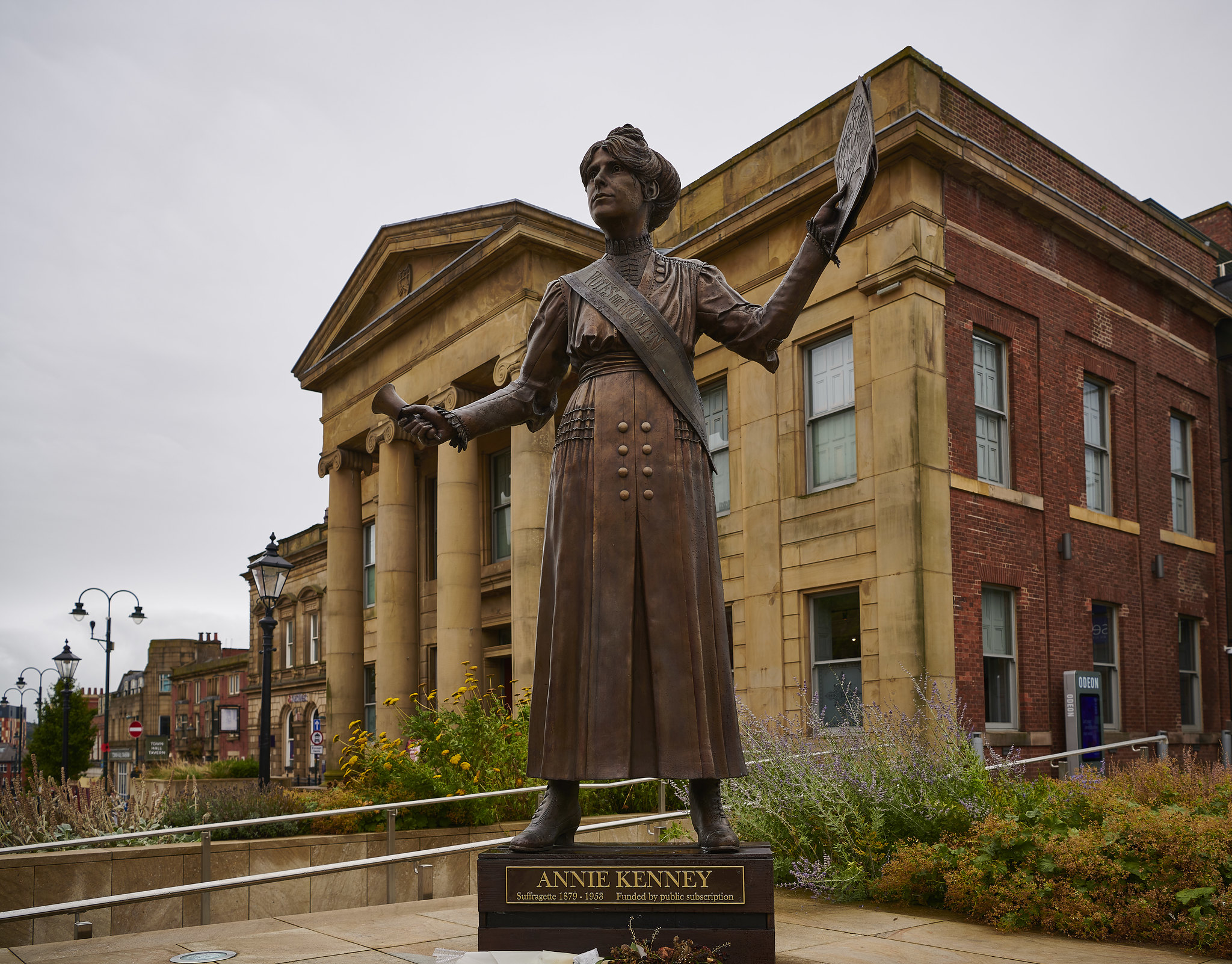
David Whalley/Flickr
The bronze statue outside Oldham Town Hall depicts former mill worker and suffragette Annie Kenney, unveiled exactly 100 years after women first exercised their right to vote back in 2018.
Although hundreds headed down for the unveiling a few years back and found out Annie spearheaded the campaign for universal suffrage, Oldham-born Kenney is often referred to as ‘Manchester’s most forgotten suffragette’.
Born in 1879 as the fifth eleven children, Annie’s working-class upbringing in Oldham involved working in the cotton mill as a ten-year-old. She spent her mornings putting a shift in down at the mill – where she even lost a finger – and her afternoons in the classroom at school.
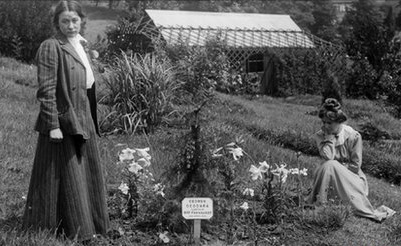
Colonel Linley Blathwayt/Wikimedia
In 1905, Annie’s life arguably changed forever when she attended a meeting in Oldham where Christabel Pankhurst spoke about voting rights for women.
Leaving so inspired, Annie started organising and speaking at meetings herself. She joined the Women’s Social and Political Union (WSPU) and in October that year changed the movement of the campaign forever.
Attending the Liberal rally at Manchester’s Free Trade Hall, Annie and Christabel Pankhurst stood up and asked the then Oldham MP Winston Churchill, ‘If you are elected, will you do your best to make women’s suffrage a government measure?’.
They got no reply – unsurprisingly.
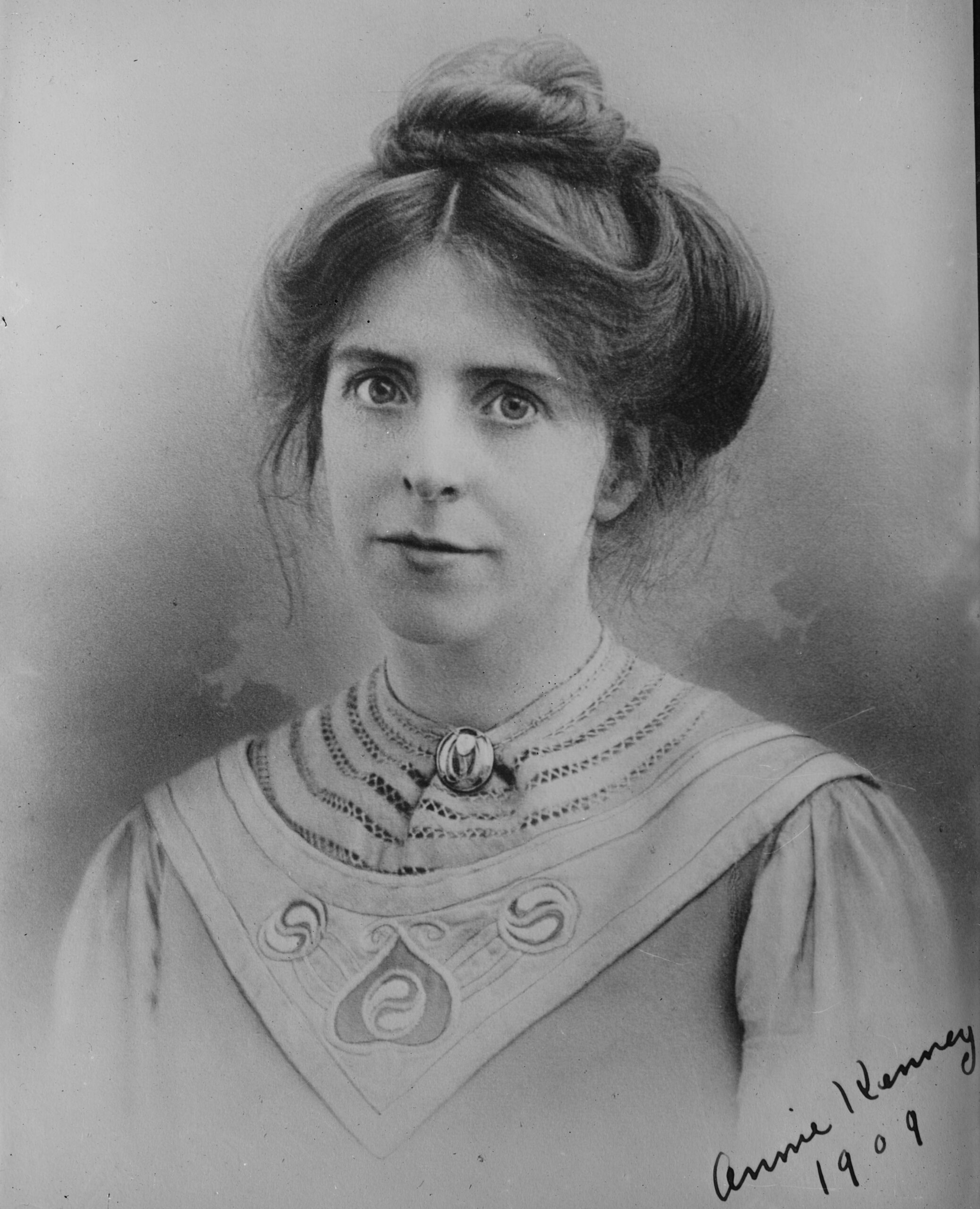
Bain News Service/Wikimedia
But it was this silent reply from Churchill that led to the unveiling of one of the most iconic slogans of all time.
After unfurling a banner donning the slogan ‘Votes for women’, the duo were chucked out of the meeting. In the struggle, a police officer claimed the women had kicked and spat at him so they were charged with assault and thrown in jail for three days.
The pivotal moment moved the suffragettes towards a more radical, direct protest and became the first of 13 times Annie Kenney was sent to prison as part of her fight towards the cause.
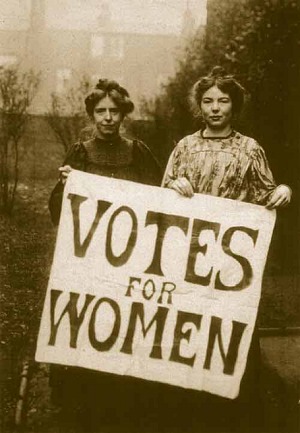
The move put suffragettes on the front pages of newspapers across the world. Annie and Christabel’s impact is described as ‘immediate and international’ and their banner became ‘one of the most memorable political slogans of all time’, according to Oxford University.
In 2018, a letter from Annie Kenney while in prison resurfaced as a historian researched her underestimated life. The letter itself was monumental, written in 1905 it is thought to be the earliest known letter from a woman involved in the militant protests.
Sent to her sister Nell, the letter begins by breaking the news that Annie was ‘released from Strangeways yesterday’, before going on to explain that while she knows her sister is ‘awfully angry’, over one hundred people were waiting to greet her.
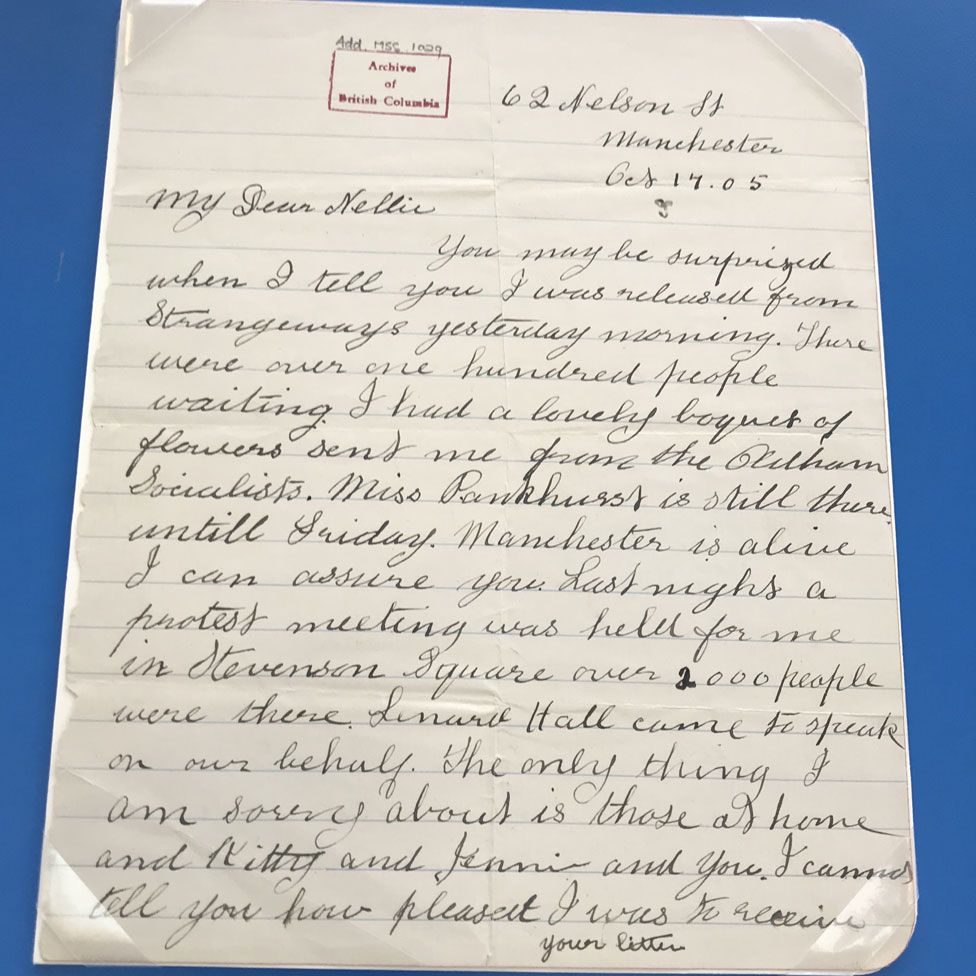
British Columbia Archives
Another 2,000 supporters gathered to hear speeches at Stevenson Square at a protest and she wrote…
“Manchester is alive I can assure you.”
Annie withdrew from active political life once she later married and gave birth to her son in 1921. It’s believed she sustained long-term health problems with roots in her hunger strikes. She died in 1953.
Annie was featured in the #WomanInHistory movement in this year’s International Women’s Day celebrations curated by modern historians aiming to highlight the women that history forgot.
The movement challenges preconceptions and makes a case for a more inclusive, diverse and honest history that celebrates the accomplishments of all of those who took part.
